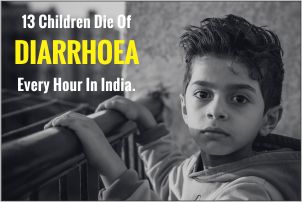- Home
- Editorial
- News
- Practice Guidelines
- Anesthesiology Guidelines
- Cancer Guidelines
- Cardiac Sciences Guidelines
- Critical Care Guidelines
- Dentistry Guidelines
- Dermatology Guidelines
- Diabetes and Endo Guidelines
- Diagnostics Guidelines
- ENT Guidelines
- Featured Practice Guidelines
- Gastroenterology Guidelines
- Geriatrics Guidelines
- Medicine Guidelines
- Nephrology Guidelines
- Neurosciences Guidelines
- Obs and Gynae Guidelines
- Ophthalmology Guidelines
- Orthopaedics Guidelines
- Paediatrics Guidelines
- Psychiatry Guidelines
- Pulmonology Guidelines
- Radiology Guidelines
- Surgery Guidelines
- Urology Guidelines
Importance of ORS in saving children From Diarrhea

ORS Day is celebrated each year worldwide on 29th July to mark the importance of ORS as a cost-effective method for prevention and treatment of dehydration, mainly caused by diarrhea. The day has its genesis in the year 2002 when Dr. Dilip Mahalanabis, an Indian Pediatrician, who along with Norbert Hirschhorn, David R. Nalin and Nathaniel F. Pierce were awarded Pollen Paediatric Research Prize, for their contributions to the discovery and implementation of oral rehydration therapy. Since then, the day is celebrated to create awareness on how to remain rehydrated and its importance.
ORS or Oral Rehydration Salts, also known as Oral Rehydration Solution is an electrolyte solution which is used for hydrating and compensating for the loss of body salts and minerals caused by dehydration due to diarrhea or heat stroke or any condition causing excessive fluid loss from the body. The solution contains the right mix of minerals like sugar, potassium, salt, etc.
It is indeed pitiful that in our country, owing to the lack of sanitation and clean water, diarrhea has emerged as the third leading cause of childhood mortality. As cited in Lancet Medical Journal (1 June 2017 edition). Over 1 lakh children under 5 years die of diarrhea in India every year. To save our children from this dreadful plight, all we need to do is to keep them properly hydrated.
“ORS should be given in any case of dehydration caused by either due to diarrhea or heat stroke or any condition causing excessive fluid loss from the body,” suggests Dr. Ravi Malik, renowned pediatrician and former Joint Secretary of Indian Medical Association.
Young children and infants are more susceptible to diarrheal disease and dehydration. Reasons include the inability to communicate their needs or hydrate themselves, higher metabolic rate, and increased insensible losses. In such cases, it is important that parents are proactive and attentive to keep the right hydration levels of their children.
For more than 25 years, WHO and UNICEF have recommended a single formulation of glucose-based oral rehydration salts to prevent or treat dehydration from diarrhea irrespective of the cause or age group affected. This product, containing 75 mEq/l sodium, 75 mmol/l glucose (total osmolarity of 245 mOsm/l) has proven effective and without apparent adverse effects in worldwide use.
The traditional ORS comes in the form of powder and needs the addition of water. However, it has been in use for many years now but is presented with some shortcomings including:
- Diarrhea is a waterborne disease and mixing the same contaminated water in the ORS powder may worsen the signs of dehydration.
- An appropriate amount of water has to be added to maintain the required osmolarity.
- The solution requires proper mixing, otherwise, the benefits of the powder cannot be fully procured.
“It is important that physicians should train parents about the proper preparation of ORS, as inaccurate preparation can lead to hypernatremia in children” warns Dr. Ajay Gambhir, Past President IAP, Delhi Chapter.
Dr.P.K.Pruthi, Director Institute of Child Health, Sir Gangaram Hospital, says that newer ORS in the form of ready-made Oral Rehydration solution has the inbuilt advantage of providing a right concentration of electrolytes thereby obviating any chance of hypernatremia. In case of ORS powder, there are chances of transmission of infection if the solution is kept outside after mixing or mixed in dirty and therefore ready-made Oral Rehydration Solution is safer considering this aspect.
Now, the new form of ORS comes in ready to drink form and that too in different flavors. It is easier to use than the traditional ORS. Its advantages include: it is ready to drink, made from sterile water and it comes in different flavors, making it palatable to children.

Disclaimer: This site is primarily intended for healthcare professionals. Any content/information on this website does not replace the advice of medical and/or health professionals and should not be construed as medical/diagnostic advice/endorsement or prescription. Use of this site is subject to our terms of use, privacy policy, advertisement policy. © 2020 Minerva Medical Treatment Pvt Ltd